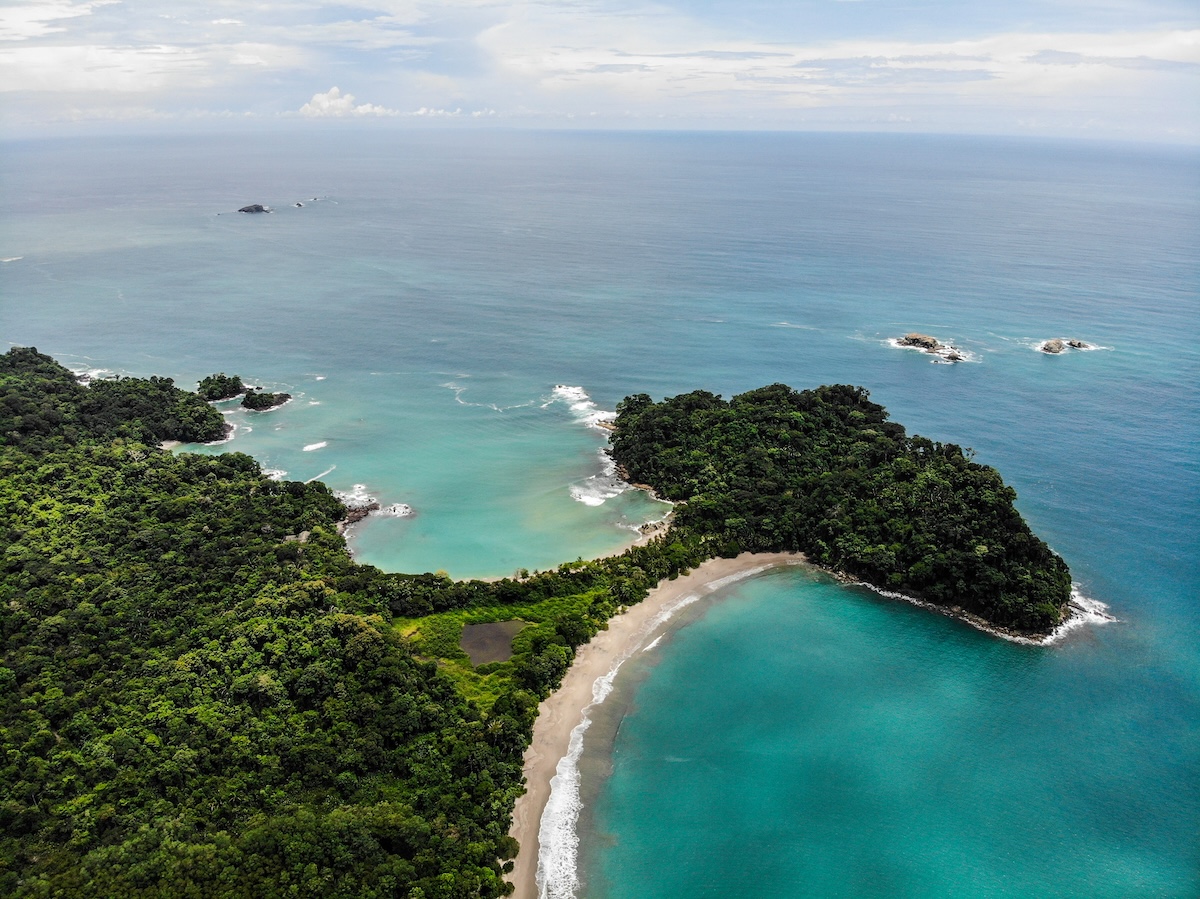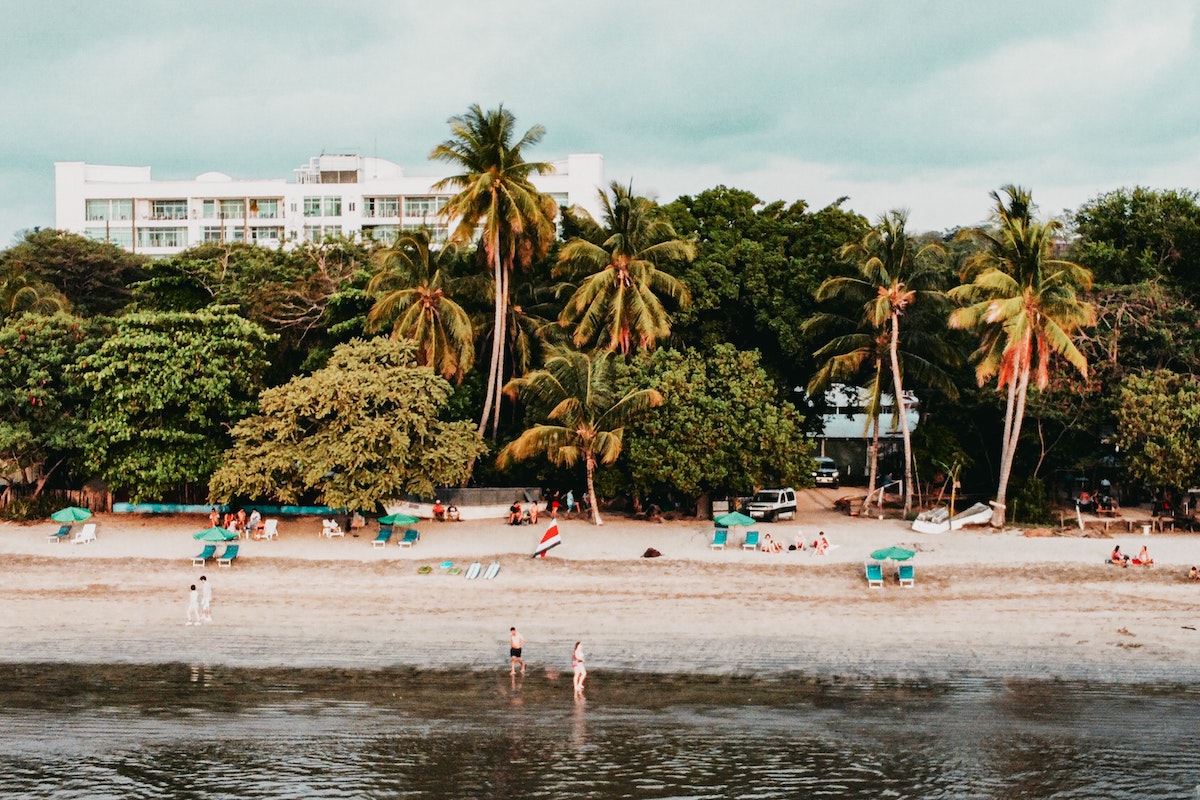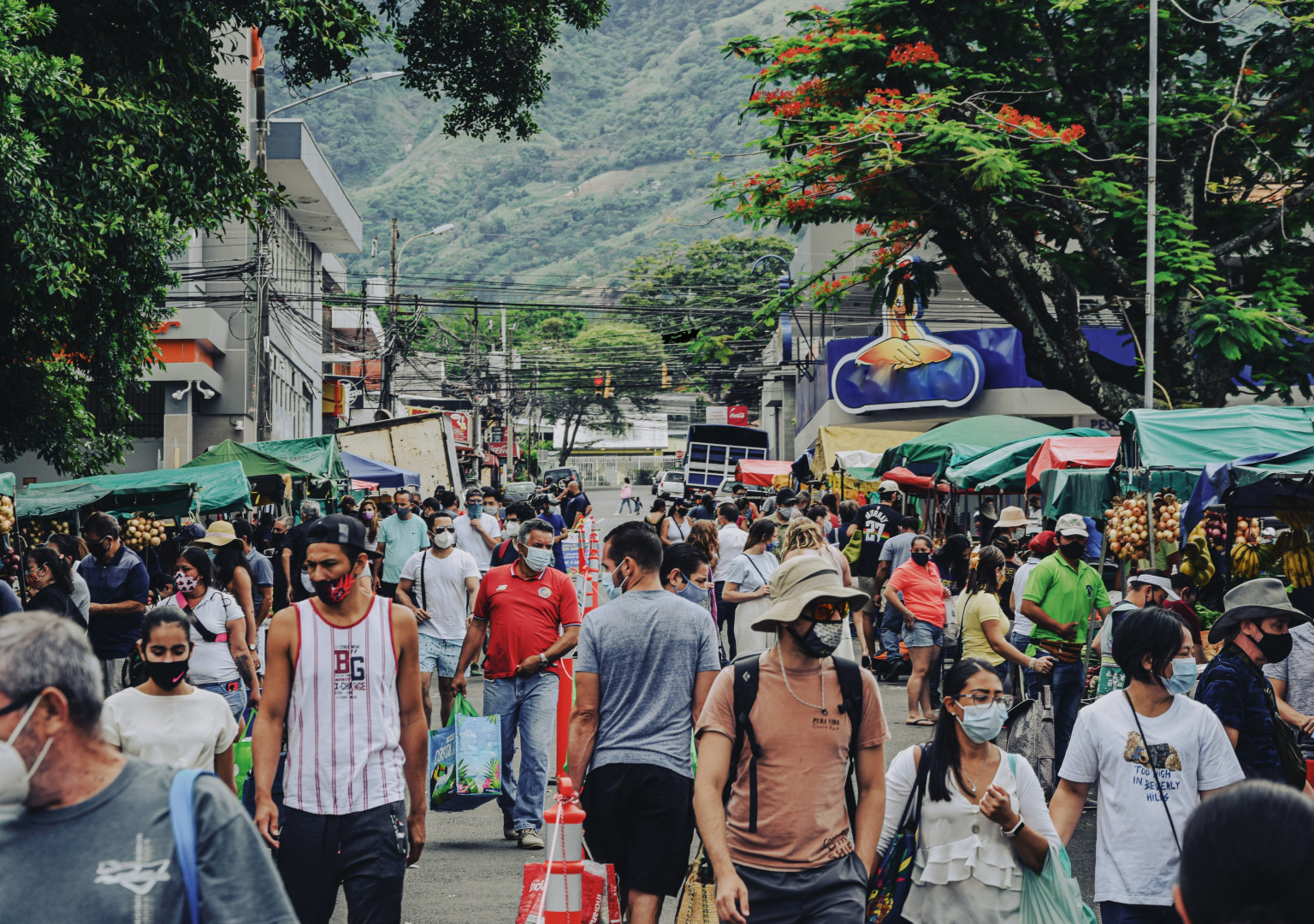By: Nahla ElKazak
Over the past couple of years, a great deal of work has gone remote out of necessity. Skeptical employers who used to doubt their employees’ productivity outside the office have recognized the fact that remote work may even increase productivity.
I no longer work a 9-to-5 so I’m not particularly bound to one place. But I love that many people now have the flexibility to work from different outposts and even different countries. You don’t have to be a freelancer to move around.
The opportunity to work anywhere has expanded so much that many countries are competing to attract remote workers to live and work inside their borders.
Costa Rica is one of those countries to jump on the digital nomad trend. The country has scenic nature coupled with great weather all year round. It welcomes foreigners and offers many programs that help them obtain legal residency, whether temporary or permanent.
Read on to learn more about different visa types for Costa Rica!
Temporary Residence Vs. Permanent Residence in Costa Rica
Most visitors enter Costa Rica with a temporary visa. This can be a tourist visa, one of Costa Rica’s provisional visas, or the new digital nomad visa. And after staying legally in Costa Rica for three years, you can apply for permanent residency.
How Can You Obtain Temporary Residency in Costa Rica?
Let’s have a look at several ways you can enter Costa Rica for a temporary stay.
Tourist Visa for Costa Rica

Via.
Not all nationalities require a visa to enter Costa Rica for purposes of tourism. Citizens of the United States, Canada, and countries of the European Union don’t need to submit a visa application before their arrival.
If you’re a US national, all you have to do is show up at the airport with a valid passport and a return or ongoing ticket.
You can check the full list of Costa Rica visa requirements for all countries here.
A tourist visa grants you a 90-day stay, after which you must either exit the country or apply for a different type of visa. Many travelers who wish to stay longer than 90 days on the tourist visa will exit the country as their visa is set to expire, take a vacation for a few days elsewhere, and then reenter with another 90-day tourist visa.
COVID-19 Travel for Costa Rica Tourist Visas
In spring 2022, Costa Rica lifted their COVID travel restrictions, though it’s recommended that you take precautions such as hand washing and temperature taking to protect yourself and others.
Costa Rica Provisional Visa for Students, Volunteers, Academics & Researchers

Via.
Costa Rica has a special category of provisional visas that applies to students, volunteers, academics, and researchers. If you fit into one of these categories, you can apply for residency at your nearest consulate.
If you wish to stay longer than the 90 days a tourist visa grants (without leaving the country), you will have to apply for a provisional visa, which allows you to establish temporary residency.
You’ll need to fill an application for a provisional visa under the special category of student, volunteer, academic, or researcher. Your application will ask for the following:
- Personal details, including full name, nationality, passport number, current address, occupation, and date and place of birth
- An address where you plan to stay in Costa Rica
Along with your application, you’ll need to attach the following documents:
- If you’re applying as a student, volunteer, academic, or researcher, you’ll need to provide an acceptance letter from the institution with which you’ll be associated
- Provide proof of funds for the duration of your stay
- A recent and duly apostilled birth certificate, no older than three months
- A background check with an issuance date that does not exceed four months at the time of submission—the certificate must be certified by NCIC National Crime Information Center, interstate identification index or triple III
- Your passport, which should be valid for at least six months
- Three passport-size photos
Once you submit the form with all the required documents, your provisional visa should be issued. The final step of the process is when you reach Costa Rica, where you must submit the documents for your residence permit to the immigration office.
The other options to obtain temporary residency in Costa Rica are based on providing proof of stable financial resources—this helps to prove that, given residency in Costa Rica, you’ll be able to contribute to the country’s economy.
Costa Rica Provisional Visa for Rentiers

Via.
You can qualify for temporary residence in Costa Rica if you can prove that you have a stable and permanent rental or investment income of no less than $2,500 per month for at least the next two years.
Fill in an application for a residency permit that states the reason for applying. Along with your application, you will need to submit the following documents:
- A recent document (not older than three months) proving that for the duration of two years, you will receive a steady income that is no less than $2,500 per month from your rental or investment property
- A recent and duly apostilled birth certificate, no older than three months
- A background check with an issuance date that does not exceed four months at the time of submission—the certificate must be certified by NCIC National Crime Information Center, interstate identification index or triple III
- Your passport, which should be valid for at least six months
- Three passport-size photos
Once the form is submitted, your provisional visa will be issued which will allow you to enter Costa Rica legally and submit the documents for your residency to the immigration office.
Costa Rica Provisional Visa for Retirees

Photo by Atanas Malamov on Unsplash
Pensioners and retirees can also apply for temporary residence in Costa Rica—all you will have to do is provide evidence that you have a continued retirement income of at least $1,000 per month.
As with other forms of temporary residence, you are required to provide the following documents:
- A recent document (not older than three months) proving that you have a permanent pension or retirement income of no less than $1,000 per month
- A recent and duly apostilled birth certificate, no older than three months
- A background check with an issuance date that does not exceed four months at the time of submission—the certificate must be certified by NCIC National Crime Information Center, interstate identification index or triple III
- Your passport, which should be valid for at least six months
- Three passport-size photos
Once the form is submitted, your provisional visa will be issued, which will allow you to enter Costa Rica legally and submit the documents for your residency to the immigration office.
Costa Rica Temporary Residence for Investors

Via.
To qualify for the Costa Rica investment visa category, you have to invest at least $200,000 in real estate or a business in Costa Rica. Under this category, you cannot work as an employee in Costa Rica and must stay in the country for at least one day per year.
Benefits of temporary residence for investors include a renewable two-year temporary residence, and ability to include your spouse and children under your residency.
Costa Rica Digital Nomad Visa

Via.
2020 and beyond marked a massive shift toward remote work, with the possibility to completely relocate without having to apply for a new job in your destination country. Many countries have jumped on the digital nomad and remote worker bandwagon and have made it an option for foreigners to live and work there as long as they meet some residency requirements—the visa is for remote employees or providers of remote services.
Costa Rica has recently joined the growing list of countries that offer digital nomads temporary residency. The new law grants visas to digital nomads and remote workers, allowing them to stay for one year with the option to extend their stay for another year.
The government of Costa Rica estimates that digital nomads will contribute about $24,000 per year to the country’s economy. The move aims to refresh the economy and provide more jobs within its borders.
“The digital nomad utilizes services, consumes food, makes purchases, utilizes transportation and hires people. All of this generates more employment and growth in the country,” President Carlos Alvarado said in a statement.
Costa Rica’s digital nomad visa started processing in 2022. The requirements and benefits are outlined below, but it’s expected that the government will add more benefits to attract more remote workers and remote employers.
What Are the Benefits of Costa Rica’s Digital Nomad Visa?
The Costa Rica digital nomad visa allows you to work and live in Costa Rica for one year, which you can extend to two years (as long as you’ve stayed in the country for at least 180 days). You’ll also be able to drive around the country using your own country’s driver’s license.
Further benefits include income tax exemption during your stay, exemption of import taxes for computers or other items needed to carry out your job while you’re in Costa Rica, and the ability to open a savings account in the country. You can also bring your family, including a spouse, children under 25 (or any age if they have disabilities), and seniors who live with you.
How Do I Get a Digital Nomad Visa for Costa Rica?
The digital nomad visa is available for foreign nationals who are remote workers or service providers that provide remote work—the work you do must be for a company or person outside of Costa Rica, meaning that you can be employed by a company in the US and work remotely in Costa Rica, you can own a company legally based outside of Costa Rica (and do all of your work online), and you can even be a freelancer with clients based outside of the country.
You must provide proof of no less than $3,000 monthly income for the past year, with continued employment going forward. If you’re traveling with your family, the combined income must be at least $4,000 per month. This must be a steady and predictable income.
You must have proof of private health insurance for you (and your family, if they’re coming with you) for the entire length of stay in Costa Rica. You also must pay for the visa application as a non-resident remote worker or service provider.
To apply, you will need:
- The application form, which you can submit through the Tramite Ya platform
- Payment of $100
- Copy of the photo page of your passport
- Bank statements showing proof of income not less than $3,000 per month (or $4,000 per month if traveling with your family)
Learn more about the application process here.
Costa Rica Digital Nomad Visa Taxes
Holders of the new digital nomad visa are exempt from Costa Rican income tax. Any imported equipment you need to get your work done in Costa Rica is also exempted from import tax.
How to Apply for Permanent Residence in Costa Rica

Via.
Generally once you’ve been in Costa Rica for at least three years under a temporary residence option, you’ll be able to apply for permanent residency. You also qualify for permanent residency if you have a close family tie to a person who is a Costa Rican national.
Provisional Visa for Those with Close Family Ties to a Costa Rican National
If you have a close family member who is a Costa Rican national, you can apply for permanent residency. This visa category applies only to parents and children under the age of 18 (or above if they’re disabled).
Required documents include:
- An application for a permanent residency visa
- The birth certificate of your Costa Rican relative—the certificate should be issued by the Costa Rican Civil Registry
- A recent and duly apostilled birth certificate, no older than three months
- A background check with an issuance date that does not exceed four months at the time of submission—the certificate must be certified by NCIC National Crime Information Center, interstate identification index or triple III
- Your passport, which should be valid for at least six months
- Three passport-size photos
Once the form is submitted, your visa will be issued, which will allow you to enter Costa Rica legally and submit the documents for your permanent residency to the immigration office.
Ready to Travel?
We hope this article helps you decide which Costa Rica visa scheme is best for your travel style and interests! We will keep updating this post as new requirements or visa changes arise.
About the Author
Nahla is a freelance writer with a business background that comes from working in the IT industry for over 12 years. She has a BA in English Literature and writes about a variety of topics. When she’s not working on a project, she’s either reading, working out, or hanging out with good company. She often spends her out-of-town time hiking. You can follow her on Twitter and LinkedIn.
Featured image via Unsplash.
Frayed Passport is a participant in the Amazon Associates Program, an affiliate advertising program designed to provide a means for sites to earn advertising fees by advertising and linking to Amazon.com. We also may share links to other affiliates and sponsors in articles across our website. If you have questions or concerns, please contact us.

